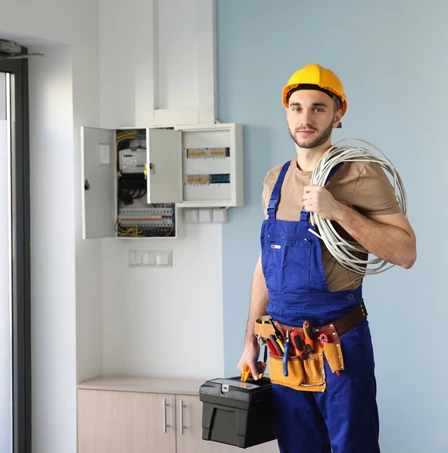Landlords have plenty of obligations they are legally bound to adhere to, including those related to the health and safety of tenants. Gas Safety Certificates are among the most important aspects of owning rental property. They ensure the safety of gas appliances and are required for all rental properties where gas appliances are present.
The government requires that landlords submit to annual gas safety checks. Should the property pass this inspection a Gas Safety Certificate is issued. Should the landlord fail to obtain the necessary certificate they may be fined thousands of pounds and face potential criminal charges.
Below, we are going to go through all the details related to Gas Safety Certificates including what is involved in obtaining one, who needs them and whether your property management company can handle the issue for you.
In 1998 the UK government passed the Gas Safety (Installation and Use) Act which lays out the specific responsibilities landlords have regarding properties with gas appliances. If you own a rental property that has gas appliances you have 3 primary obligations:
Once a year a Gas Safe registered engineer must conduct the above-mentioned gas safety inspection to determine that all your gas-powered appliances are in proper working order. A typical gas safety inspection will see the engineer check to ensure that:
If the gas safety engineer is satisfied that all your gas appliances meet current safety standards, they will issue a Gas Safety Certificate. While not mandatory, it is recommended that you also ask the gas safety engineer to visually inspect all pipework related to any gas appliances.
Please note that landlords are not responsible for gas-powered appliances brought into the flat or house by their tenant.

Anyone who owns rental property that has gas-powered appliances is legally responsible to submit that property to an annual gas safety inspection. That inspection must be conducted by a qualified and registered gas safe engineer.
That certified engineer is obliged to record the details of their inspection on the CP12 Certificate, also known as the Landlord Gas Safety Record or simply the Gas Safety Certificate. Once the Gas Safety Certificate has been filled out the landlord is further obliged to share copies with their tenants.

It is recommended that you schedule your gas safety check 11 to 12 months after the previous check. A little early is better than a little late, as having the inspection conducted after a year has passed could result in significant fines.
As we mentioned, once the gas safety inspection is complete (and assuming the building passes) a Gas Safety Certificate (CP12) will be issued and the landlord will be obligated to share copies with their tenants. Those copies must be shared with existing tenants within 28 days of the inspection. New tenants must receive a copy of the Gas Safety Certificate before they move in.
Even if all the gas-powered appliances in your rental property are brand new you will still need to have them inspected by a Gas Safe registered engineer once a year. But who are these important professionals and where do you find them?
In order to become a Gas Safe registered engineer a candidate must:
*Typically, it takes about 3 weeks for the Core Domestic Natural Gas Safety certification to be issued.
Once a person has had their name added to the Gas Safe Register, they are able to conduct Gas Safe inspections and issue Gas Safety Certificates.

The Gas Safety Certificate is more than a piece of paper with the engineer’s name on it. It includes a plethora of information relevant to the performance of the gas appliances on the property. At minimum a Gas Safe Certificate will include the following:
Above we mentioned that landlords are not responsible for any gas-powered appliances brought into the residence by tenants. However, the landlord is still responsible for maintaining the pipework (if any) that those 3rd party appliances are attached to.
The government does not set the price of the Gas Safe Certificate. The cost is determined by the individual Gas Safe Engineer, or the company that the engineer works for. Prices can and do vary depending on a number of things, including how many appliances there are on the property. You may wind up paying as little as £30 or more than £100. It is best to ask for an estimate before deciding who to enlist to conduct the inspection.
The government will not provide the landlord with a warning that their certificate is about to expire. It is up to the landlord or the managing agent of the property to keep track of expiration dates and to arrange for annual inspections. Failure to do so could result in hefty fines and potential criminal charges.
Failure to properly maintain gas appliances can have grave consequences. Every year more than 15,000 UK house fires begin in the kitchen, with a significant portion originating with gas stoves, gas ovens and other gas appliances.
But fire is not the only danger. If a flue becomes blocked fumes can escape into the living area of the property. Gas fumes contain high amounts of carbon monoxide which can easily be fatal. The symptoms of carbon monoxide poisoning are well known and include:

Don’t Wait, Get in Touch with Energy Performance Certificates Today
The bottom line is that gas safety is crucial to the health and peace of mind of all tenants. To ensure you fulfil your legal obligations as a landlord both to the government and your tenants contact the team at Energy Performance Certificates today and book a gas safety check. The number to call is 0203 397 8220. Or, if you prefer, write to: hello@energyperformancecertificates.co.uk. Don’t wait until the last minute. Call today.